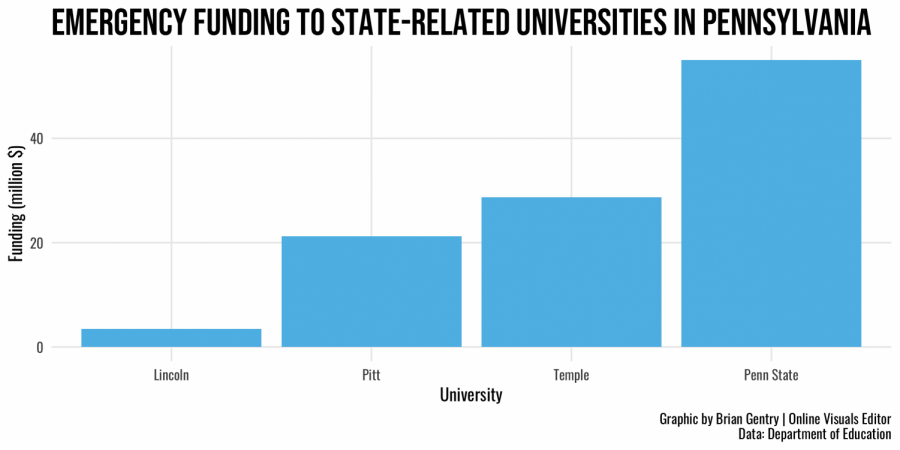Pitt to receive more than $21 million in emergency federal funding
April 13, 2020
Pitt will receive nearly $21.3 million in emergency funding as part of the federal government’s $2.2 trillion coronavirus economic rescue package, according to figures from the federal Department of Education.
The funding, which comes from a nearly $14 billion fund allocated based on the relative number of Pell Grant and non-Pell Grant students at a given institution, will help colleges and universities fill yawning budget gaps caused by the pandemic and assist students financially.
The package mandates that colleges and universities use at least half of the aid to provide emergency financial aid grants to students for expenses related to the pandemic. These expenses could include food, housing, course materials, health care, technology and child care. Of the $21,265,340 in total that the University will receive, at least $10,632,670 must be allocated for these emergency student grants, with the rest to be utilized at Pitt’s discretion.
Pitt spokesperson Kevin Zwick said the University has awaited additional guidance on the funding provisions that affect students since the package’s passage on March 27. He added that Pitt received initial details last Friday from the federal Department of Education.
There are already initiatives underway at Pitt for students to receive emergency grants for costs related to the pandemic. Student Government Board and the University administration recently launched a $400,000 Emergency Aid Fund earlier this month, which allows for students to apply for a maximum of $600 for essential items, such as medical necessities, sudden loss of housing, food insecurity, overdue utility bills and unexpected transportation.
Zwick did not directly answer questions about how students can apply for the federal aid money or when they can begin to receive it, but said Pitt is working with the federal government to make sure the money will go out the door quickly to students.
“The University is still seeking additional clarity on the federal requirements for use of this assistance, so that when the funds arrive, we will be able to make them available as quickly as possible,” Zwick said.
It also requires that schools continue to pay its employees and contractors to the “greatest extent possible” during the pandemic disruption. Pitt’s student workers continue to be paid, though most subcontracted dining workers and security officers have been laid off or furloughed.
The package also includes about $3 billion to split up amongst the states based on the ratio of each state’s school age population to the national population. Pitt could stand to benefit from this money too, though it is unclear how much money Pennsylvania will receive and the amount that could ultimately be passed on to Pitt.








